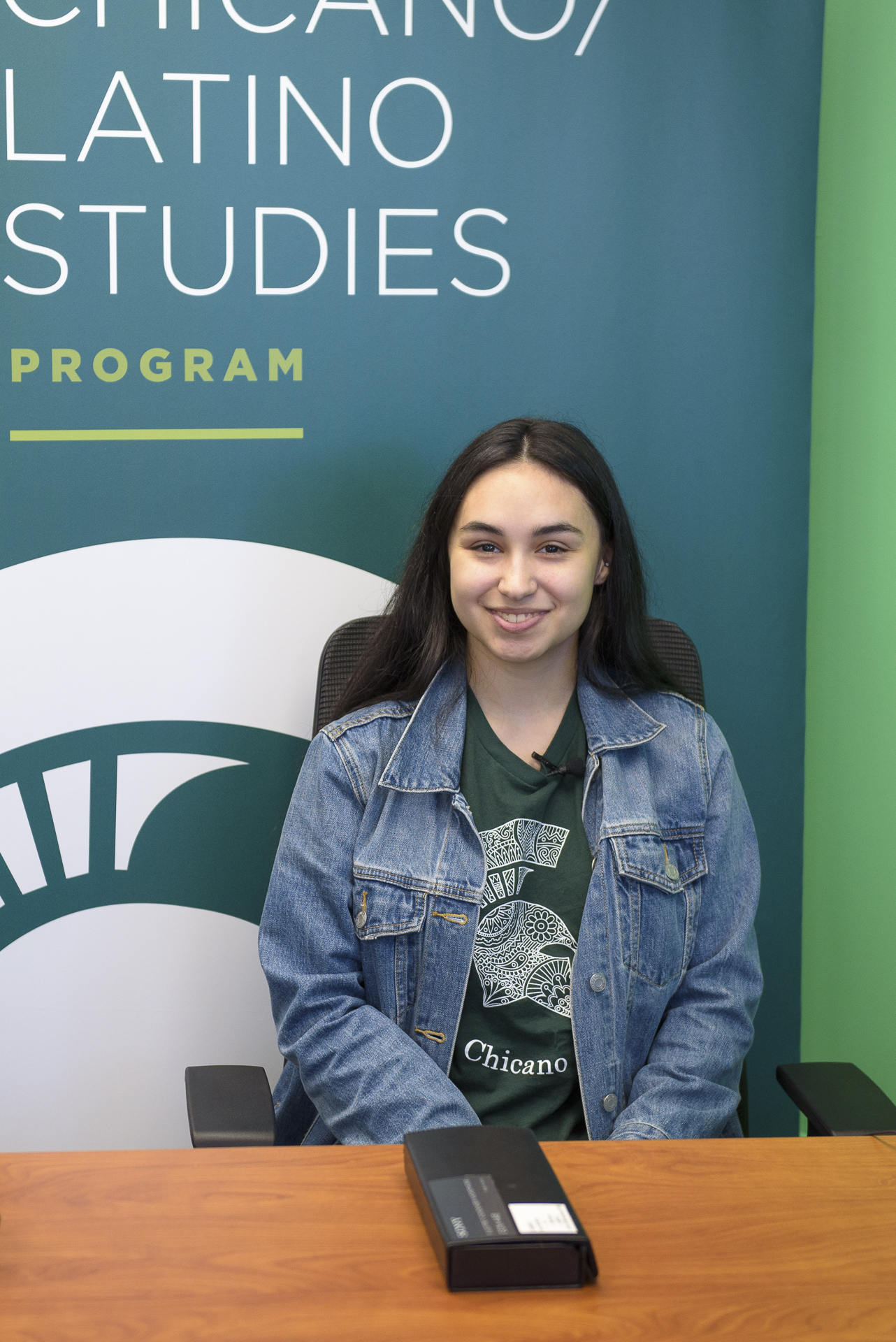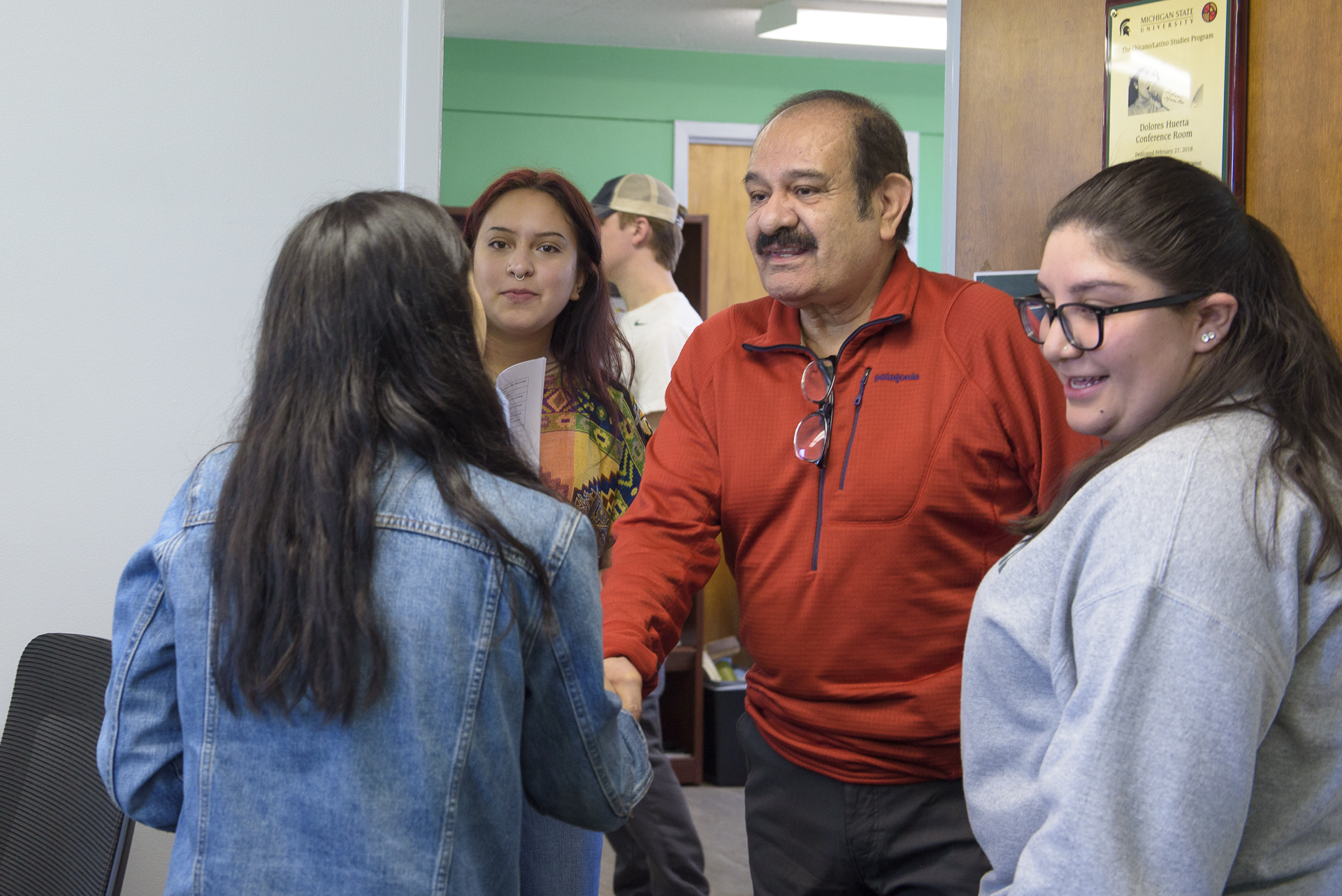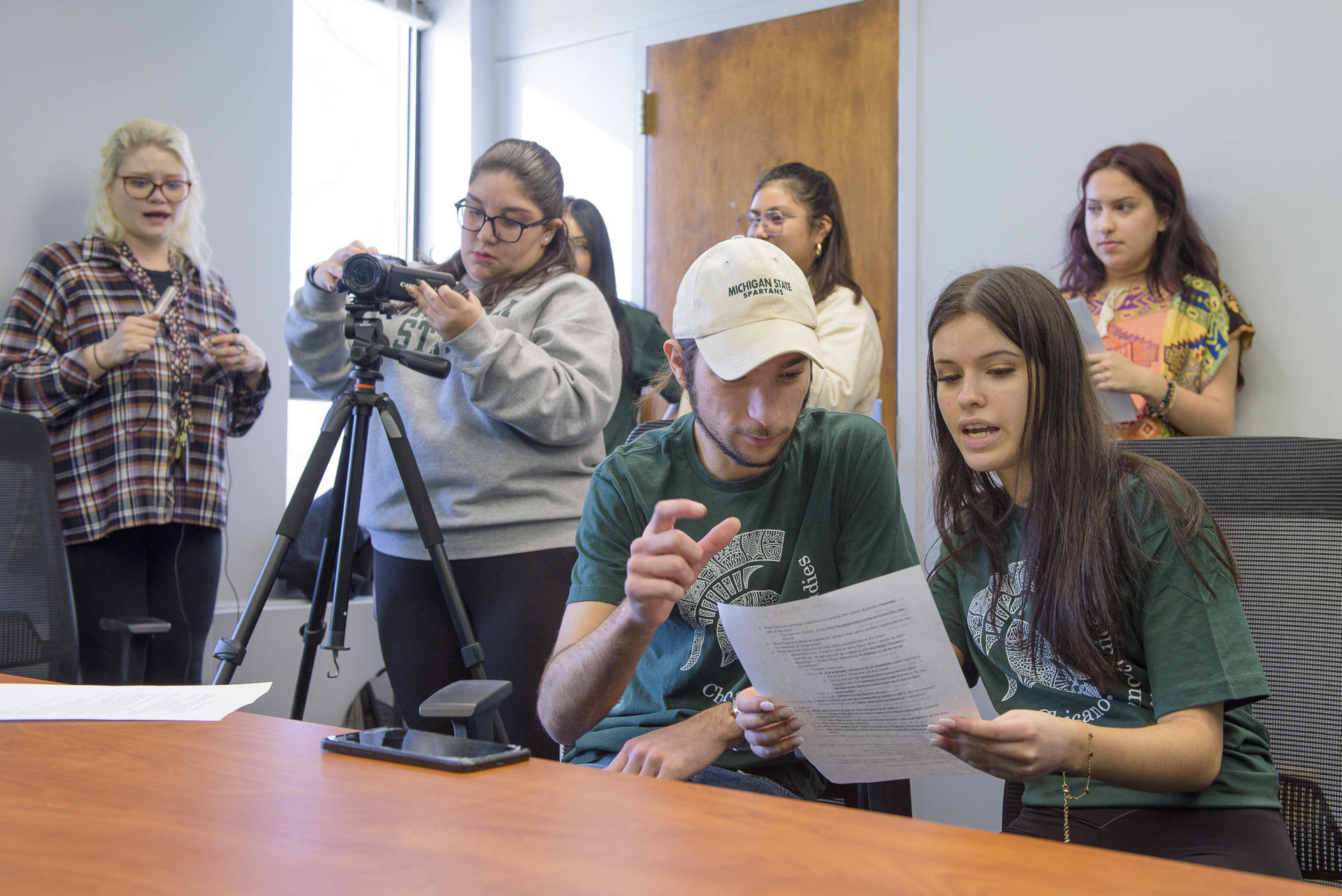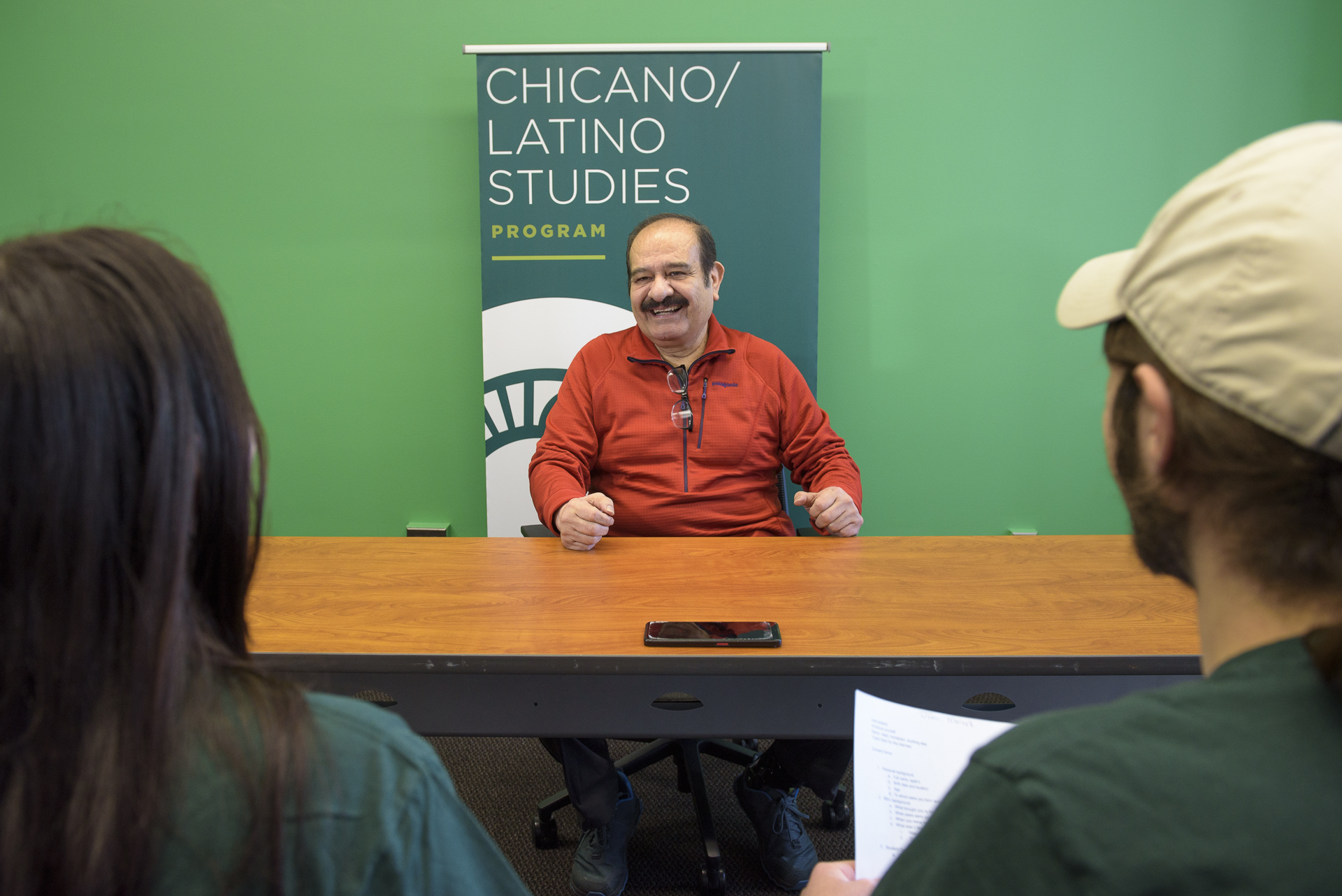CLS class undertakes an oral history of Chicano/Latino studies at MSU
March 19, 2023 - Karessa Weir
“You are what our grandmothers only dreamed of.”
Chicano/Latino Studies Librarian Emertius Diana Rivera sits in the shade in Austin, Texas and shares her story with the latest generation of CLS students over Zoom, an interview lead by social relations and policy senior Beija McCarter, a CLS minor. Rivera tells them of the conflicts she and other Michigan State University students had with administrators to recruit and support immigrant and migrant Chicanx and Latinx students from Michigan during the 1970s.
Rivera tells them of the conflicts she and other Michigan State University students had with administrators to recruit and support immigrant and migrant Chicanx and Latinx students from Michigan during the 1970s.
She shares the efforts to boycott lettuce and grapes in the dorms of MSU in solidarity with labor leader Cesar Chavez. Later, Rivera directed the creation of the Chavez collection at the MSU Library.
She is most proud of the work she did hiring Chicanx/Latinx students at the library and working with them to create the Chavez collection.
“These nine students were invested in the Chavez collection and the comradery we developed over the years,” Rivera said. “It served as a place for them to know it was ok to be them.”
The interview was part of Dr. Delia Fernández-Jones’ class CLS 492: Research, Theory, and Practice. Their theme this semester is, "The Past, Present and Future of Chicano/Latino Studies at MSU."Dr. Fernández-Jones is Assistant Professor of History in the College of Social Science and a Core faculty member for CLS.
“I am feeling excited about the opportunity to look deeper into MSU Chicano/Latino history,” McCarter said. “This class has opened my eyes to how active Chicano/Latino students were on campus, and that we have always been here. Being able to interview Diana Rivera was amazing, as I have been hearing about her since my start in CLS, and knowing now the impact she has had on this campus. To learn from such a CLS legend and be able to interview her was one of the best opportunities I have gotten at MSU. My favorite part was listening to Diana and all the stories she had from her time at MSU.”
The students also interviewed Juan Marinez, retired assistant director of the MSU Cooperative Extension and also a founding member of the Chicano/Latino studies program.
Born in Texas, Marinez moved to Michigan in 1955 and enrolled in MSU in 1965.
“There were only 12-13 of us that identified as Chicano/Latino at MSU, Mexican-American kids from Michigan. We were seen as lower class, from a working class,” he said.  A social work and Spanish major, Marinez took the first Chicano Studies course offered at MSU, taught by the late anthropologist Dr. Joseph Spielberg Benitez, who went on to found and lead the Julian Samora Research Institute at MSU.
A social work and Spanish major, Marinez took the first Chicano Studies course offered at MSU, taught by the late anthropologist Dr. Joseph Spielberg Benitez, who went on to found and lead the Julian Samora Research Institute at MSU.
The culture at MSU at the time was very involved in protest and civil rights so the Chicanx/Latinx students took their cues from the activism of the African American students.
“We protested within the university for Cesar Chavez,” he remembered. “We could relate to the issues because our parents were farmers.”
Led by CLS minor Kimberly Guerra, the students also interviewed journalist and educator Rosa Morales who attended MSU in the late 60s and early 70s. She was among the students who created the first Chicano group on campus, called MASS (Mexican American Students at State). They advocated for more recruitment of Chicanx and Latinx students to MSU.
The memories of Marinez, Rivera and Morales have been preserved in both video and audio form and the students are building a website on the history of Chicano/Latino Studies at MSU. They also carried out archival research in the José F. Treviño Chicanx/Latinx Activism Collection at MSU special collections.
“I’m hoping that students will see the long presence that Latinxs have had on this campus that goes far beyond what many believe. While we are celebrating 25 years of officially being a program, I want students to know that we have had people fighting for Chicano/Latino Studies content to be taught on campus,” said Dr. Fernandez-Jones.
“I also want students to know that many of the resources they have access to today are because of the work that Juan Marinez, Rosa Morales, Diana Rivera, and many of their cohort members did many years ago. I want students to be inspired by the idea that the work we do now will bear fruit in the future.”
Photos by College of Social Science photographer Jackie Belden Hawthorne.

